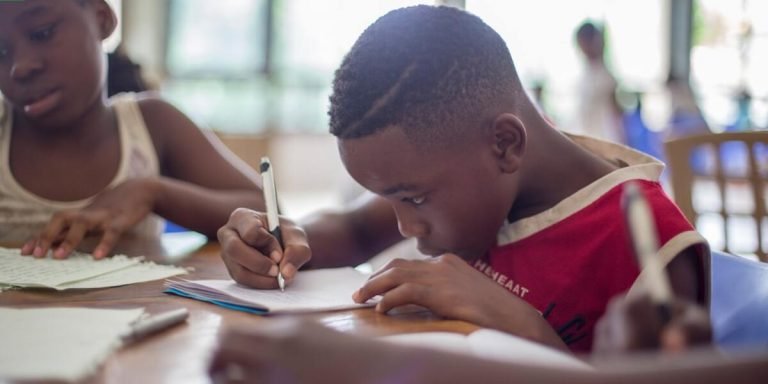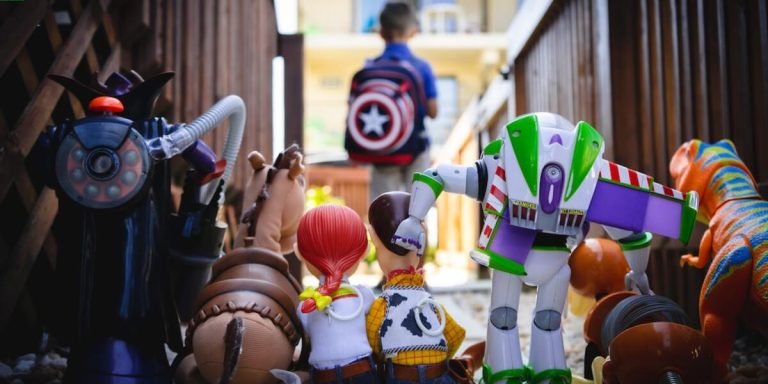Behavior Strategies: Guiding Children Towards Positive Choices in Early Education
Understanding effective behavior strategies is a crucial part of ensuring the smooth progression of children’s early education. These techniques help in maintaining discipline, focusing on skill-building and steering youngsters towards positive choices. The right approach can significantly impact how kids respond to instructions, interact with their peers, and generally conduct themselves – all traits that contribute to creating an enriching learning environment.
In this context, special education resources and support play an integral role by catering to individual differences and needs among diverse learners. With personalized guidance tailored for every child’s unique requirements, educators can reinforce desired behaviors while discouraging negative ones – essentially sculpting well-rounded individuals ready for life beyond classroom walls.
Did you know?
According to a study in Early Childhood Research Quarterly, children as young as three can make conscious decisions regarding their behavior when guided by proactive and positive strategies.
Understanding Behavior Strategies in Special Education
In the realm of special education, understanding and implementing behavior strategies plays a pivotal role. Given our advancing technology-driven world in 2023, these strategies are increasingly being blended with digital tools to maximize their effectiveness. Crafting a learning environment that is both inclusive and interactive for students with exceptional needs requires just the right amalgamation of traditional instructional methods and modern tech-innovations.
Comprehending behavior strategies isn’t about merely suppressing inappropriate behaviors; it’s primarily aimed at promoting positive behavioral changes while helping children develop vital social skills. In this age where technology is seamlessly integrating into every aspect of our lives, leveraging its capabilities can greatly support educators’ efforts towards managing student behaviors constructively.
For instance, assistive technological devices such as smart tablets pre-loaded with educational games or apps designed specifically for children struggling with attention disorders can significantly enhance engagement levels during lessons. Additionally, virtual reality (VR) has emerged as an engaging modality enabling experiential learning environments for those who learn best through real-world simulations rather than conventional teaching techniques.
On another note, today’s growing vaults of online resources serve not only as convenient repositories but also foster self-learning amongst students needing additional assistance outside classroom hours on specific areas they struggle within. Teachers providing links to relevant e-books or guiding access to informative video content related to their individual challenges could initiate interest-based autonomous studying henceforth making strides toward improved personal growth outcomes over time.
Identifying Key Behavior Interventions for Diverse Learners
Implementing appropriate behavior strategies in special education is crucial to foster a conducive learning environment. In the face of diversity, it’s essential to identify and utilize key behavioral interventions that cater specifically to diverse learners’ needs.
Technology integration has emerged as an invaluable tool in identifying effective behavior strategies for diverse learners. The use of educational technology can streamline this process by personalizing teaching methodologies based on students’ unique capabilities and requirements.
One aspect technology aids tremendously with is data collection and analysis from various educational resources. It facilitates educators’ understanding of which methods work best for individual students, thereby allowing them more insight into applying suitable discipline techniques or positive reinforcement mechanisms according to each child’s specific situations – leading ultimately towards improved overall classroom management.
Educational apps provide tailored programs specifically designed for children with special needs or cognitive impairments like Autism Spectrum Disorder (ASD) or Attention-Deficit Hyperactivity Disorder (ADHD). These apps incorporate game-like elements to reinforce desired behaviors through a reward system. They create engaging experiences that instill necessary skills, merging fun with developmental milestones. This approach makes it less intimidating than traditional coaching routines and gradually increases acceptance among diverse learner groups.
Technological platforms also aid parents by providing access to vast online forums where they exchange insights about tested-and-proven behavior intervention plans used on similar cases globally – expanding hugely upon available options beyond local networks alone!
Designing Individualized Behavioral Plans
In today’s educational landscape, designing individualized behavior strategies is a crucial component of special education. Using advanced technology seamlessly integrated into the teaching process has transformed how educators approach this task in 2023.
Creating unique behavioral plans involves understanding each child’s specific needs and formulating suitable methods to encourage positive behavior change. Thanks to advancements in technology, tailoring such initiatives for every student has become an achievable goal.
Digital tools aid teachers in collecting necessary data about students’ behaviors more objectively than traditional means. This real-time reporting enables quick adjustments leading to improved effectiveness of the designed plan over time.
Educational software that supports individual learning curves also play a vital role here. These applications adapt according to learners’ pace and style- making lessons engaging while tracking progress all along.
Smart AI-powered systems are being significantly used as part of behavioral strategies too. They help by predicting possible triggers or patterns which might lead towards undesired activities; hence allowing preemptive measures on teacher’s part.
Collaboration between parents and educators forms another critical aspect when executing these personalized programs successfully at home & school alike. Technology aids through platforms promoting active communication – keeping everyone informed about updates and changes ensuring synchrony across different environments children engage with daily.
Technology integration doesn’t eliminate face-to-face engagements but rather enhances them—making interactions more effective by providing comprehensive insights needed for evolving successful behavior management strategies individually tailored per learner need.
Integrating Technology to Enhance Behavior Strategies
The progressive world of 2023 offers a unique opportunity to integrate technology into creating more effective behavior strategies in childhood education. As parents and educators, it’s vital to understand the potential that lies within our current tech-savvy age, specifically related to transforming behavioral management.
One such way is through leveraging educational software designed for special needs students. These are tailored tools aimed at improving focus, increasing engagement levels and reinforcing positive behaviors among children with learning difficulties. Such programs often feature interactive games or activities facilitating key social skills like cooperation, patience, turn-taking — all critical elements in shaping a child’s holistic development.
Moreover, digital reward systems have proven successful in providing instant reinforcement encouraging better student conduct concurrently teaching them about responsibility and goal-setting–further testament that plugging into these innovative technologies can reimagine traditional perspectives on managing children’s behavior.
Utilizing Apps and Software for Positive Reinforcement
In the current age of digital learning, harnessing technology to streamline behavior strategies is no longer an optional extra but rather a critical cornerstone for effective childhood education. The integration of applications and software into our everyday teaching methodologies opens up endless possibilities for promoting positive reinforcement.
To begin with, teacher-friendly apps can be utilized as tools in implementing behavioral management within classrooms. For instance, ClassDojo serves as an interactive platform where teachers can provide immediate feedback on student’s behaviors while parents stay updated about their child’s progress throughout the day. This real-time communication between educators and parents fosters consistency in applying behavior strategies both at school and home.
Similarly, another game-changing tool includes PBIS Rewards – an advanced system that automates your Positive Behavior Interventions and Supports program digitally. With features like point tracking mechanism or tally counters specifically designed for students requiring special attention, it ensures recognition doesn’t get missed due to human error or oversight thus reinforcing desired behaviors more effectively.
Furthermore, using virtual reality (VR) based platforms such as Nearpod allows immersive educational experiences benefitting all children including those needing additional support resources by enhancing engagement levels significantly leading towards optimal outcomes regarding overall classroom conduct.
Interactive Tools for Monitoring Student Progress
Technology integration in the field of education has yielded many benefits, particularly when it comes to implementing effective behavior strategies. One notable development is the advent of interactive tools for monitoring student progress.
Interactive technological tools provide educators with real-time data regarding students’ performance and learning patterns, reshaping how they implement their behavioral approaches. This shift allows them to identify challenges quickly and devise personalized teaching methods or special education resources based on individual needs.
1) Behavioral Tracking Apps – These digital platforms offer features like customizable tracking forms which allow teachers not only keep an eye on a child’s academic growth but also track behaviors that need improvement. The built-in analysis functionalities can show trends over time, highlighting any repetitive negative patterns thus enabling proactive addressing rather than reactive measures.
2) Online Quiz Platforms – These platforms assess understanding immediately at the end of each lesson giving crucial insight into what areas might require further explanation or adjustment in teaching style.
3) Digital Portfolios – Allows both teachers and parents accessibility to a child’s work so that families are looped in regularly helping discuss concerns upfront making these potent “Special Education Resources & Support”.
4) E-Learning Systems – Cutting edge systems like Learning Management System (LMS), Student Information System (SIS), etc., hold extensive databases containing comprehensive information about student activities allowing customizing behavior strategies as required.
Another vital aspect where technology serves useful is remediation support provided by adaptive learning software programs customized for every learner encouraging healthier study habits leading towards improved overall performances.
Collaborative Approaches to Implementing Behavior Strategies
Innovations like online platforms or apps foster collaboration among teachers, parents and students— resulting in synchronized efforts towards managing behavioral challenges. For instance, using real time data tracking applications allows everyone involved to monitor progress closely and alter their strategies as needed.
Moreover, it’s paramount to understand that successful implementation is not limited only within classroom walls but extends beyond them too—involving caregivers at home and experts outside school hours who make up part of this collective endeavor for holistic student development.
Ultimately though we’re not replacing traditional methods altogether! Rather exploring how digital tools when combined with conventional practices can lead us toward improved outcomes catering every child’s unique requirements while empowering him/her on an individual level — making all feel valued despite their differences.
Training Educators and Staff on Effective Techniques
Implementing behavior strategies in a learning environment effectively requires the cohesive efforts of educators and staff alike. They must undergo adequate training to understand, promote, and execute these strategies for optimal results.
Today’s rapidly evolving technological landscape offers fresh opportunities for implementing such tactics into educational setups more efficiently than ever before. The integration of technology into education processes has transformed traditional teaching methods as we know them, ushering us swiftly onto an era marked by innovation.
Technology allows teachers not just to instruct but to inspire their students in new ways with interactive digital tools that stimulate young minds making concepts easier to grasp and absorb. In special education particularly, it holds immense potential when utilized adeptly within structured frameworks centered around tailored behavioral plans for each child’s unique needs.
Engaging Families in Support Networks
Parents and educators are increasingly recognizing the importance of collaborating in implementing behavior strategies. By engaging families in supportive networks, we can cultivate a more inclusive environment conducive to learning.
Adopting collaborative approaches to behavior management stems from understanding that no child exists out of context. Families play an essential role as they provide rich insights about their children’s behaviors outside of educational settings. Inclusion here is not just beneficial but vital for crafting comprehensive, effective behavior strategies.
Technology integration offers impressive support tools in these efforts – developing communication apps or platforms allows constant contact between teachers and parents regarding ongoing progress or concerns related to individual students’ conduct at school while enabling instant access to special education resources if needed be it counseling services or online occupational therapy exercises.
Online peer-support communities also present powerful avenues for engagement—allowing shared experiences between families facing similar challenges which creates a community-based network facilitating exchange ideas leading improved implementation ‘behavioral strategy’.
Conclusion
In conclusion, embracing and implementing effective behavior strategies is not just a need but a necessitous cornerstone for guiding children towards making positive choices in their early education. By fostering an environment of support and understanding, we can derail negative patterns while simultaneously nurturing the seeds of responsibility, decision-making skills, and emotional intelligence in our budding scholars.
Thank you for taking your time to journey with us through these insights on childhood education. We encourage all parents and educators to explore more enlightening resources available on our website geared at uplifting the potential of every child. Education should never be labyrinthine but rather an enriching voyage that we share jointly with our children – let’s keep sailing together!







